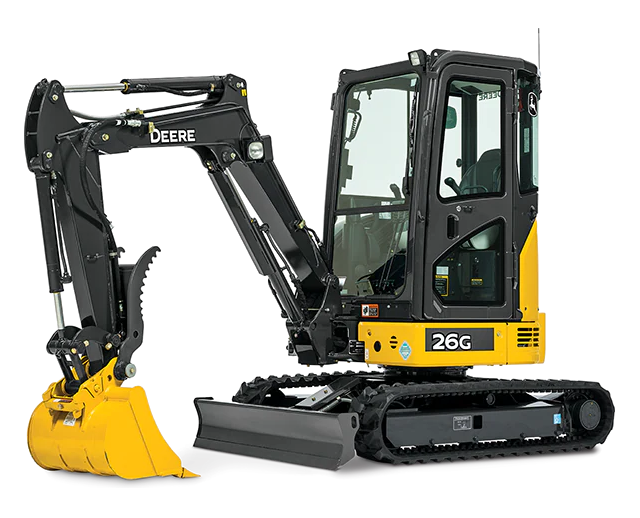Equipment Rental Company: Your Source for All Sorts Of Equipment
Equipment Rental Company: Your Source for All Sorts Of Equipment
Blog Article
Optimize Your Budget by Recognizing the Prices Connected With Building Equipment Services
Understanding the complete scope of costs associated with building tools rentals is critical for maximizing your budget. What methods can be used to effectively handle these prices and make certain a much more efficient rental experience?
Overview of Rental Costs
When taking into consideration building equipment services, comprehending the associated costs is extremely important for efficient budgeting and task planning. Rental prices can vary considerably based upon a number of variables, including tools type, period of leasing, and area. The preliminary rental cost typically mirrors the tools's market demand and its connected operational abilities, affecting the overall expense.
Along with the base rental rate, supplementary prices may emerge, such as transportation charges, gas surcharges, and upkeep costs. It is vital to make up these extra costs to properly evaluate the overall price of renting out devices. In addition, the rental period can affect prices; longer services might get approved for discounted prices, while temporary rentals could sustain greater daily fees.

Failure of Rental Prices
A thorough understanding of rental prices is essential for professionals and project managers aiming to optimize their budgets. Rental prices for construction tools generally are composed of numerous parts, consisting of base rates, time-based costs, and use costs.
Base rates are the core charges related to the rental of the equipment, often determined by the kind and dimension of the machinery. These prices can vary substantially, affected by factors such as tools demand, accessibility, and regional market fads. Time-based costs, which might be daily, weekly, or monthly, serve to fit different project timelines and rental durations.
In addition, rental rates might consist of usage fees, which apply when tools is used beyond a specified threshold, guaranteeing that the rental firm can represent wear and tear. Seasonal need changes can also influence rental rates, with peak building seasons generally regulating higher costs.
In addition, recognizing the rental company's policies concerning maintenance and insurance policy can offer more insight right into the general cost framework. By analyzing these elements, professionals can make enlightened decisions, making sure the selection of rental devices aligns with both job needs and budget constraints.
Added Fees to Think About
Recognizing the intricacies of additional charges is important for professionals to handle their overall rental costs successfully. Past the basic rental rates, different auxiliary costs can significantly impact the total expense of tools service. These costs often include shipment and pick-up costs, which can vary based on distance and logistics involved in delivering the tools to and from the work site.
Moreover, some rental firms might enforce gas additional charges if the devices is returned with less fuel than when leased. It is likewise necessary to know prospective cleaning fees, particularly for specific equipment that requires thorough upkeep after usage.

Completely examining the rental contract and clarifying these added charges upfront can help contractors stay clear of unforeseen costs and make sure that budget plans continue to be intact throughout the project lifecycle.
Repair And Maintenance Expenditures
Regular repair and maintenance expenditures are commonly neglected factors that can dramatically influence the total cost of building and construction devices rentals. When renting tools, it is important to take into consideration not only the rental costs but also the possible expenses connected with keeping the equipment in optimum operating condition.
Many rental firms include fundamental upkeep as part of the rental contract; nevertheless, more substantial repair services or unexpected break downs can result in added expenditures. It's vital to examine the rental agreement thoroughly to comprehend what upkeep solutions are covered and what responsibilities fall on the tenant.
Moreover, equipment that is not properly maintained can bring about inefficiencies on the job site, potentially raising and causing delays project costs. To mitigate these dangers, it is a good idea to carry out regular inspections and maintain open interaction with the rental provider concerning any kind of concerns that arise during usage.
Insurance Policy and Liability Costs
Insurance and liability prices are essential elements that can substantially affect the general expense of construction tools services (forklift rental). These prices make sure that both the rental business and the client are shielded from prospective financial losses arising from crashes, damages, or theft during the rental duration

Additionally, clients need to know any deductibles or exemptions in the insurance coverage, as these can affect prospective out-of-pocket expenses. Comprehending the conditions of any insurance protection is crucial to avoid unexpected prices. Ultimately, budgeting for insurance and obligation expenses can help ensure a smoother rental experience and secure versus monetary dangers connected with building tasks.
Final Thought
To conclude, a comprehensive understanding of the costs related to construction tools rentals is read the full info here necessary for reliable spending plan management. By assessing rental rates, extra costs, upkeep expenditures, and insurance individuals, organizations and needs can lessen unanticipated expenses. This strategic method not only improves cost-effectiveness however likewise guarantees that jobs advance smoothly and efficiently. Ultimately, informed decision-making concerning equipment rentals adds to the general success of building and construction undertakings.
Rental expenses can differ considerably based on a number of elements, including tools kind, duration of leasing, and location (aerial lift rental). The rental duration can impact rates; longer leasings might qualify for discounted prices, while short-term services might sustain higher day-to-day charges
By performing complete research and involving with credible rental companies, service providers can properly navigate the complexities of rental rates, inevitably optimizing their financial resources.
Beyond the standard rental prices, numerous extra charges can substantially influence the total expense of equipment leasing. Rental firms frequently supply responsibility insurance coverage that covers injuries to 3rd parties or damage to residential or commercial property, while devices damages insurance can cover the price of repair work or substitute if the rented equipment is damaged.
Report this page